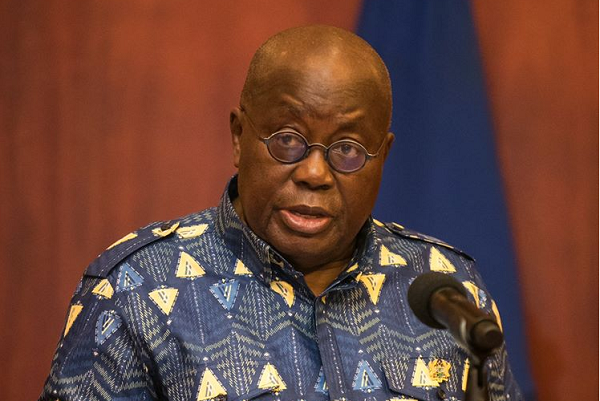The government and the World Bank are to invest $219 million under the Ghana Accountability for Learning Outcomes Project (GALOP) to improve the quality of education in 10, 000 selected low-performing basic schools across the country.
The project, which also has the support of the United Kingdom’s Department for International Development (DFID) and the Global Partnerships for Education, will also provide a comprehensive set of interventions to address constraints, from teaching to learning, in schools and ultimately strengthen equity and accountability in the education sector.
Critical driver
President Nana Addo Dankwa Akufo-Addo, who launched the project at the Jubilee House yesterday, said it provided yet another signal of greater things to happen in the education sector.
He said teachers in the early grades would be provided with continuous training in line with the new curriculum while the schools would receive teaching and learning materials.
In addition, he said, heads of schools would be trained on improved school management techniques and supervision while assessment systems would be strengthened.
President Akufo-Addo expressed the hope that the implementation of the GALOP would help drive standards and quality in schools.
President Akufo-Addo said societies that had made rapid progress in the world made education the central feature of their development.
He said as an equaliser of opportunity, education was also the most effective way to change the fortunes of the country in order to join the group of developed nations.
“Prior to the assumption of office in 2017, I pledged to make education as the heart of my vision for the growth, development and transformation of Ghana. We have implemented significant reforms to improve access, quality of education, infrastructure, teacher training and professionalisation, curriculum development, school inspection, and Technical and Vocational Education and Training (TVET), “ he stated.
Extolling the virtues of the Minister of Education, the President said his leadership supervised “the radical expansion of access to education embodied in our policy of Free SHS which has brought 1.2 million Ghanaian children into the education ecosystem.”
He described the enrolment under the Free SHS as the highest number of students in secondary education in Ghana’s history, saying 400, 000 of the number who gained admission would have otherwise been excluded.
President Akufo-Addo indicated that education from Kindergarten (KG) to JHS formed the building blocks of any education system and, therefore, if the foundation was weak, the toil would be in vain.
To that end, he said: “It is as vital that our children receive the best of quality education if they are to progress onto higher levels and ultimately acquire the skills and training that are essential to building our country.”
Professional allowance
Touting the achievements of his administration further, President Akufo-Addo said: “We have increased capitation grant by 120 per cent from 4.50 cedis per child to 10 cedis per child and continue to invest in infrastructure and the supply of teaching and learning materials for our children.”
He said a well trained, confident and contented teacher was the key to the delivery of quality education.
Against that background, he stated: “We restored, since coming into office three and a half years ago and paid up to date teacher trainee allowances which were abolished by the previous administration.”
In addition to the yearly average increase of salaries of 10 per cent over the last three years, President Akufo-Addo said the government had for the first time in the history of the country, paid a professional allowance to teachers.
Upgrading
Touching on the upgrading of colleges of education to university colleges, to a four-year Bachelor of Education (BEd) degree programmes, he announced that the introduction of the Bachelor’s programme meant that soon first degree would be the minimum requirement for teaching at any level of the education system.
The aim of the teacher reform programme, the President explained, was to enhance capacity and improve the quality of teacher training to enable teachers to respond to educational needs.
“President Akufo-Addo said to achieve the desired improvement in learning for all children, the government was determined to ensure that children in every part of the country were taught by professional teachers.
He expressed appreciation to the World Bank and the DFID for their support.
Out-of-school children
The World Bank Country Director, Mr Pierre Laporte, expressed the hope that the project would reach out to out-of-school children.
With respect to the COVID-19 pandemic, Mr Laporte said the initiative would also support distance and remote learning, back to school campaigns and safe re-entry.
The interventions, according to him, would allow the education sector not only to respond to future crisis but also foster and leverage digital literacy and technology to improve access to quality education.
“Through all these interventions, the project will support over 10, 000 schools and benefit about 3.5 million students, teachers and other stakeholders including girls, children with disability and 75, 000 out-of-school children,” he added.

